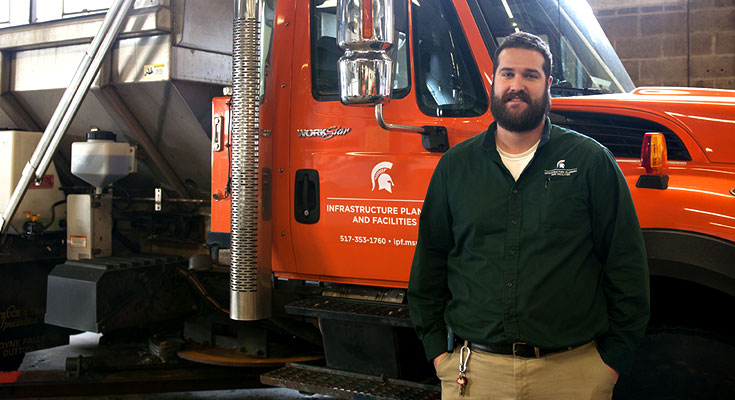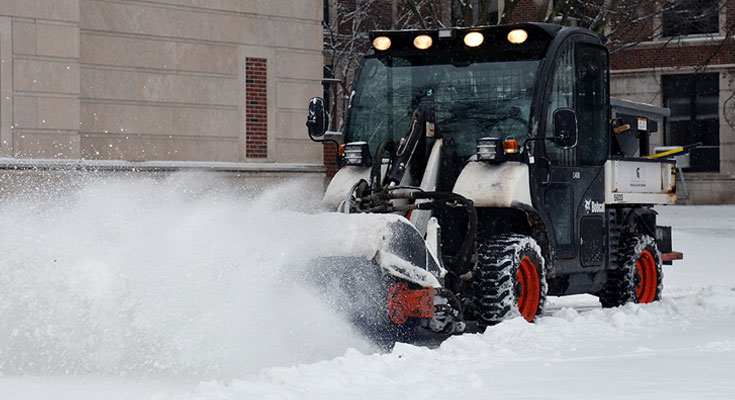Improving snow removal operations with sustainable practices
Michigan State University is no stranger to the difficulties of Michigan winters; snow, ice and freezing temperatures can prove hazardous whether you're walking, biking or especially driving on a blustery day. To keep campus from freezing over during the chilly winter months, the MSU Infrastructure Planning and Facilities Landscape Services snow removal team is employing several tactics that both enhance safety and reduce environmental impact.

Landscape Services Operations Supervisor Ross Weaver.
In support of MSU's Bolder by Design initiative, Landscape Services has adapted their snow removal techniques to improve operational performance in a sustainable way. Their biggest focus: decreasing the amount of salt they use during the winter season.
"Any time we can cut down on chlorides is better for the environment," Landscape Services Operations Supervisor Ross Weaver said, "once that salt is in the water, it doesn't really come out. It just remains as pollution to the waterways."
In contrast to traditional salting methods alone, MSU uses an organic-based liquid deicer to melt ice and snow on the roads and walkways. Derived from beet juice, this substance cuts down on harmful chlorides that eventually make their way to the Red Cedar River. The organic deicer is also more effective under colder weather conditions than traditional salt because it melts the snow and ice at lower temperatures, making it more adaptable to a variety of snow and ice events. Sidewalk snow removal teams are also equipped with special brooms that are now used during lighter snow events, which has helped cut down on salt use as well.

To maximize time and energy, the snow removal team also developed specific routes for sidewalks, parking lots and roadways that lead to greater efficiencies. The routes are designed to ensure all areas identified for snow removal are assigned to each operator and the routes have been balanced so that each team completes their area in about the same amount of time, which helps conserve fuel, optimize labor and equipment resources and reduce overall equipment emissions.
Despite the environmental challenges associated with snow removal, Landscape Services is determined to continue to work towards greater sustainability. The team regularly attends conferences and meetings to continually improve their practices.
"As part of the MSU team, we want to advance high a performance culture - and sustainability is a part of that. We want to be the obvious choice for snow removal because of our customer service and our leadership in this industry," said Weaver.

